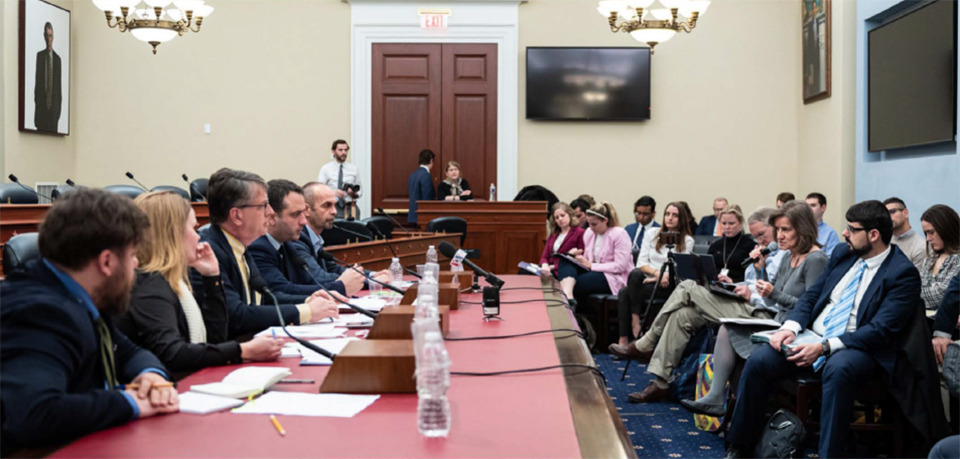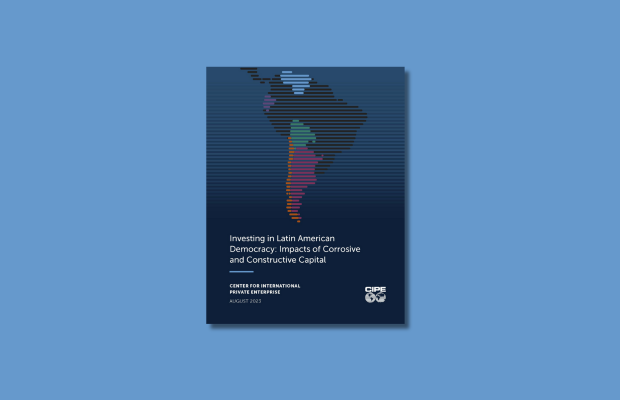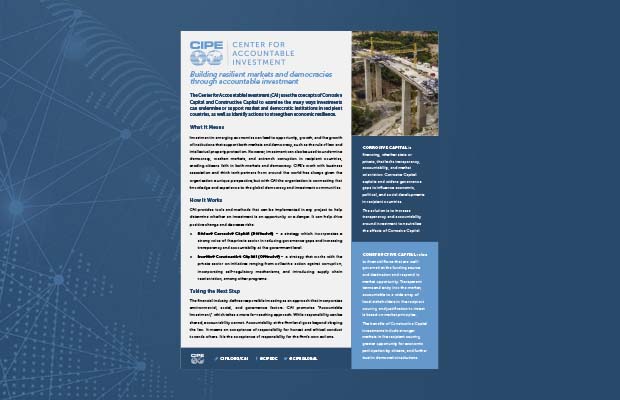Corrosive & Constructive Capital Initiative
Led by the Center for International Private Enterprise

Led by the Center for International Private Enterprise


Investing in Latin American Democracy: Impact of Corrosive and Constructive Capital summarizes the key findings from five years of investigation into the influx and effects of "corrosive” and “constructive” capital in Latin America. The weakened and fragile state of many Latin American nations has increased their dependency on foreign financing, which often comes from anti-democratic nations.

Ukraine’s reconstruction and recovery costs are the focus of a new report released jointly with the government by the World Bank, the United Nations, and The European Union. The assessment focuses on humanitarian and economic needs, as well as what it will take to rebuild once Russia’s war on Ukraine is over. Updated estimates now exceed $400 billion and there is much debate over how to support reconstruction in Ukraine that is truly transformative and ensures a clear break from the past.

The Center for Accountable Investment (CAI) uses the concepts of Corrosive Capital and Constructive Capital to examine the many ways investments can undermine or support market and democratic institutions in recipient countries, as well as identify actions to strengthen economic resilience.